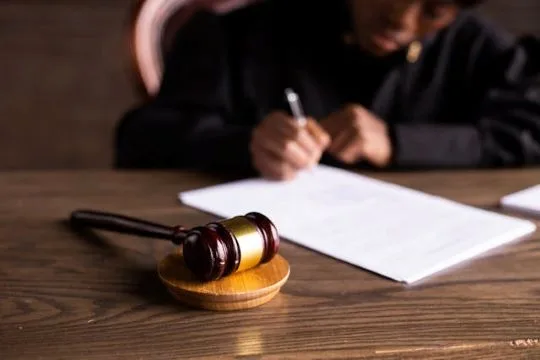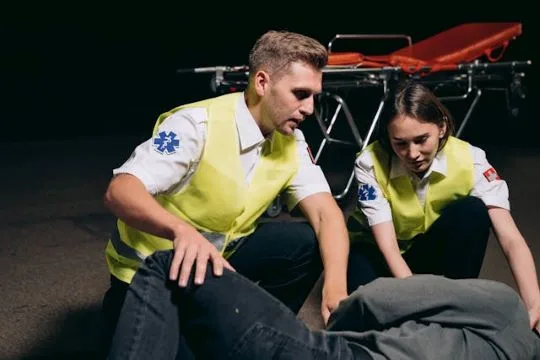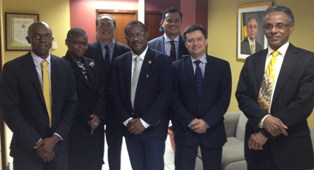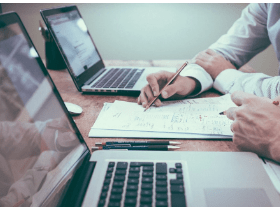Restoring Hope: Legal Aid for Personal Injury Victims

Suffering personal injury can have ruinous consequences, impacting victims physically, emotionally, and financially. According to the CDC, unintentional injuries are the primary reason for death among individuals under forty-four in the United States. The global number of personal injuries is devastating. ILO reports over 340 million deaths related to this and another whooping 160 million from work-related illnesses globally.
When faced with the aftermath of a personal injury, these victims, including their families often find themselves overwhelmed and unsure about how to proceed. In such difficult times, legal aid emerges as a beacon of hope, providing support, guidance, and expertise to help victims navigate the complexities of the legal system. This article explores the vital role legal aid plays in restoring hope for those hurt.
What is Personal Injury?
Suffering harm due to another’s negligence or intentional actions encompasses a broad spectrum of incidents referred to as personal injury. This can range from car accidents that result in whiplash or broken bones to slip-and-fall accidents causing sprains or head injuries, as well as cases of medical malpractice leading to severe health complications.
Beyond the immediate physical injuries, personal injury victims often experience emotional distress and psychological trauma, such as anxiety, depression, or PTSD. Moreover, they may face substantial financial burdens, including medical bills, rehabilitation costs, and lost wages due to an inability to work during recovery or permanent disability.
The financial impact can also worsen emotional strain. This creates stress and uncertainty for injured persons and their families. So comprehensive support, including legal aid, is crucial. It helps navigate complexities during recovery, seeking deserved compensation.
The Role of Legal Aid
Legal aid crucially supports injured victims who have suffered harm due to the negligence or wrongful actions of others and cannot afford legal representation or access to the judicial system by offering different essential services. Here are the primary roles of legal assistance:
Free Legal Advice
A legal aid organization represents personal injury victims for free to help them understand the legal rights provided to them and offer needful advice concerning the available options. This is awarded to the victim freely and in any way, letting the victim make a sober decision on the case without worries of a high consultation fee.
Representation
These organizations offer personal injury to victims who cannot afford an attorney. Some will specialize in specific accidents, from job trips and falls to truck accidents. In a truck accident-related injuries case, finding a truck accident lawyer can help offer insights and the proper representation toward getting the ideal compensation. A competent lawyer is most likely to legally represent the victim’s interests in court cases related to the injury, ensuring their rights and standing, respectively, in judicial instances.
Access to Resources
Legal aid does more than just give advice and representation. It also gives victims access to all resources. Some groups will help with legal paperwork, court filings, and connecting victims to experts like doctors or accident reconstruction pros. With this help, victims can know what’s needed to pursue legal justice.
Level the Playing Field
Often, the injured person feels outmatched when facing a well-funded defendant or insurance company with strong lawyers. Legal aid ensures quality legal services are equally available to all victims, regardless of financial ability. This gives anyone, rich or poor, an equal chance to seek justice for their injuries.
Ensuring Equal Access to Justice
Legal aid ensures personal injury victims can access justice equally. This includes protection against imbalances in access to legal help due to financial means through support and representation for those who’d otherwise be disadvantaged navigating the legal system. This promotes fairness and equity in pursuing compensation for personal injuries.
The Healing Power of Hope
Hope powerfully aids victims’ healing after injuries, especially during the recovery phase and when they are seeking justice. The costs associated with legal proceedings, including attorney, court, and other expenses, can be prohibitively high for many victims. Legal aid organizations bridge this gap by offering their services either free of charge or at reduced rates based on the individual’s financial circumstances, ensuring that economic barriers do not hinder access to justice.
For these reasons, legal aid fosters this hope, providing not just representation but reassurance and empowerment too. Compassionate guidance, key resources, and relentless advocacy help victims confidently navigate legal challenges. Thus, creating a supportive environment and equipping them for justice restores power to move forward, heal, and rebuild after trauma.
Empowering Personal Injury Victims
In personal injury law, legal aid shines hope for victims navigating legal complexities. Through a multifaceted approach, legal aid provides:
Education
Victims are educated on their rights and educated to understand the actions and decisions in the case. This includes explaining to them the laws surrounding the topic and possible outcomes.
Support and Encouragement
Legal aid groups offer support and, crucially, personal encouragement for each personal injury victim on understanding and negotiating the complex legal processes. This may involve explaining their rights and helping collect documents; assistance completing forms may also be needed.
Advocacy
Today, victims have advocates on their side. Legal experts fight for fair compensation. Moreover, they help victims get the maximum payout possible. These advocates use legal knowledge to reach the best outcome. This may involve negotiating a settlement. Or, it could mean going through court proceedings. Either way, the victim has someone on their corner fighting their battles.
Overcoming Barriers
Overcoming barriers to accessing legal aid is vital for injured victims needing support and representation. While playing a key role, challenges like lacking awareness or legal apprehension may discourage seeking help. Nevertheless, surmounting obstacles requires proactively reaching local organizations or reliable recommendations. Thus, taking these steps ensures necessary assistance navigating legal intricacies and pursuing justice.
Advocacy and Policy Reform
Personal injury legal aid groups act as important change advocates. Ideally, they go beyond specific cases to push system-wide reforms for all victims’ rights. Moreover, strategic efforts by these groups influence laws and policies enhancing legal access and fair treatment. By tackling systemic issues through needed changes, they build a framework benefiting individual victims and society.
During difficult personal injury situations, legal aid emerges as a beacon of hope and support. By recognizing its pivotal role and advocating for better legal access, this can ensure injured individuals receive essential aid throughout recovery, thus pursuing deserved justice.






